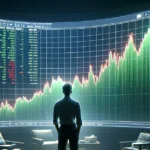Navigating the Hidden Costs of Ego in Trading
In the intricate world of trading, investors must navigate not only the visible costs associated with their portfolios but also the hidden, ego-driven expenses that can silently drain their resources. Understanding and managing these costs is crucial for sustaining long-term success in the markets.
Usually, the costs of ego are the most expensive ones that tend to send us out of the business or, cause harm the very least.
The Tangible Costs of Trading
At the outset, traders encounter several explicit costs:
- Bid-Ask Spread: This is the difference between what buyers are willing to pay and what sellers accept. It’s an immediate cost you face with each trade.
- Commissions on Securities: Every time you buy or sell a stock, you pay a fee. This commission is a direct cost of trading.
- Market Data Fees: Accessing real-time market data often comes with its own set of fees, adding to the cost of trading.
While these are straightforward to quantify, they only represent the surface of potential expenses a trader faces.
The Ego’s Toll on Your Portfolio
Beneath the surface lie the ego-driven costs, more difficult to measure but at least equally impactful on your trading results:
Holding onto Losers
Pride can trap traders into holding stocks that are plummeting, under the mistaken belief that things will turn around if they just wait long enough.
Doubling Down on Losses
The ego can convince traders to buy more of a losing stock, hoping to average down the cost. This strategy is often less about strategic planning and more about proving one’s initial decision correct.
The most common here is that we rationalize ourselves to buy more of the stock that is going down – we are telling ourselves that this way we are reducing the average buying price of the stock.
The reality is that our portfolio’s worth is declining and that was not the overall purpose when we started trading or investing.
Seeking Validation
Many traders feel a need to show the market they were right, even at the expense of their portfolio. This desire for validation can often lead to irrational decision-making. The fact is that there is no logical reason to seek any validation because probably the trader himself/herself is the only one who sees the balance of the account.
Chasing Losses
Trying to recover lost money by taking further risks is a direct consequence of ego-driven trading. It’s akin to gambling in an attempt to break even, often resulting in deeper losses.
The saying goes like this: “You cannot solve a problem with the same mindset that was used to create it.”
The Cost of Ignoring Ego

Failing to acknowledge the role of ego in trading is like ignoring a leak in your ceiling. Just wiping the floor won’t help because the problem still exists:

If we keep making the same mistakes again and compensating the costs with additional money, we are digging ourselves a bigger hole. Putting a band-aid on the ceiling won’t help:

Our responsibility is to know all our costs and expenses in our portfolio. That’s what professionals do. That’s what differentiates people who make money in trading from those who don’t.
Embracing Accountability
Trading effectively means taking ownership of your mistakes and doing everything possible to correct them. Often, the root cause of a dwindling account isn’t bad luck or a volatile market but our own decisions.
Confronting the Root Cause
Denial and quick fixes won’t mend a bleeding portfolio. Just as you would fix a hole in the roof to stop a leak, addressing the ego’s influence on your trading decisions is essential for long-term success.

Illuminating the Path with Consciousness
The ego thrives in the darkness of unacknowledged flaws and biases. By bringing consciousness to your trading decisions—turning on the light, so to speak—you can scatter the shadows of your ego, revealing a path to more rational and disciplined trading.
We must remember that the ego is always there. When we switch off the light (metaphorically, and do our things unconsciously, we immediately give power and freedom to our egos.
Conclusion: Mastering the Ego for Trading Success
In the competitive trading landscape, battling market forces and one’s ego simultaneously emerges as a critical challenge. Acknowledging and managing the hidden costs inflicted by ego significantly boosts trading performance, paving the way for sustained success. Traders must realize their ego’s subtle sabotage of decision-making, which often leads to unnecessary financial losses and overlooked opportunities. By proactively tackling these ego-driven pitfalls, investors can adopt a disciplined and objective trading strategy, prioritizing long-term growth over the fleeting satisfaction of being right.
Grasping the full spectrum of trading costs, encompassing both tangible expenses and intangible ego-driven losses, equips investors for more strategic and informed decision-making. Traders who take control of their ego’s influence navigate market complexities with greater clarity and precision. Transitioning from ego-led impulsivity to a data-driven, mindful trading approach is crucial for reducing losses and enhancing gains. Holding oneself accountable and identifying the true reasons behind trading missteps mark the beginning of a journey toward trading mastery.
Mastering the markets fundamentally requires mastery over oneself. Traders who consistently evaluate their strategies, admit their faults, and learn from these admissions stand a better chance at long-term prosperity. Illuminating ego’s shadowy influence clears the path for rational, well-considered decisions, guiding portfolios towards profitability. As traders grow more conscious of the ego’s hidden costs and implement strategies to counteract its effects, they unlock new levels of success in the trading domain.


